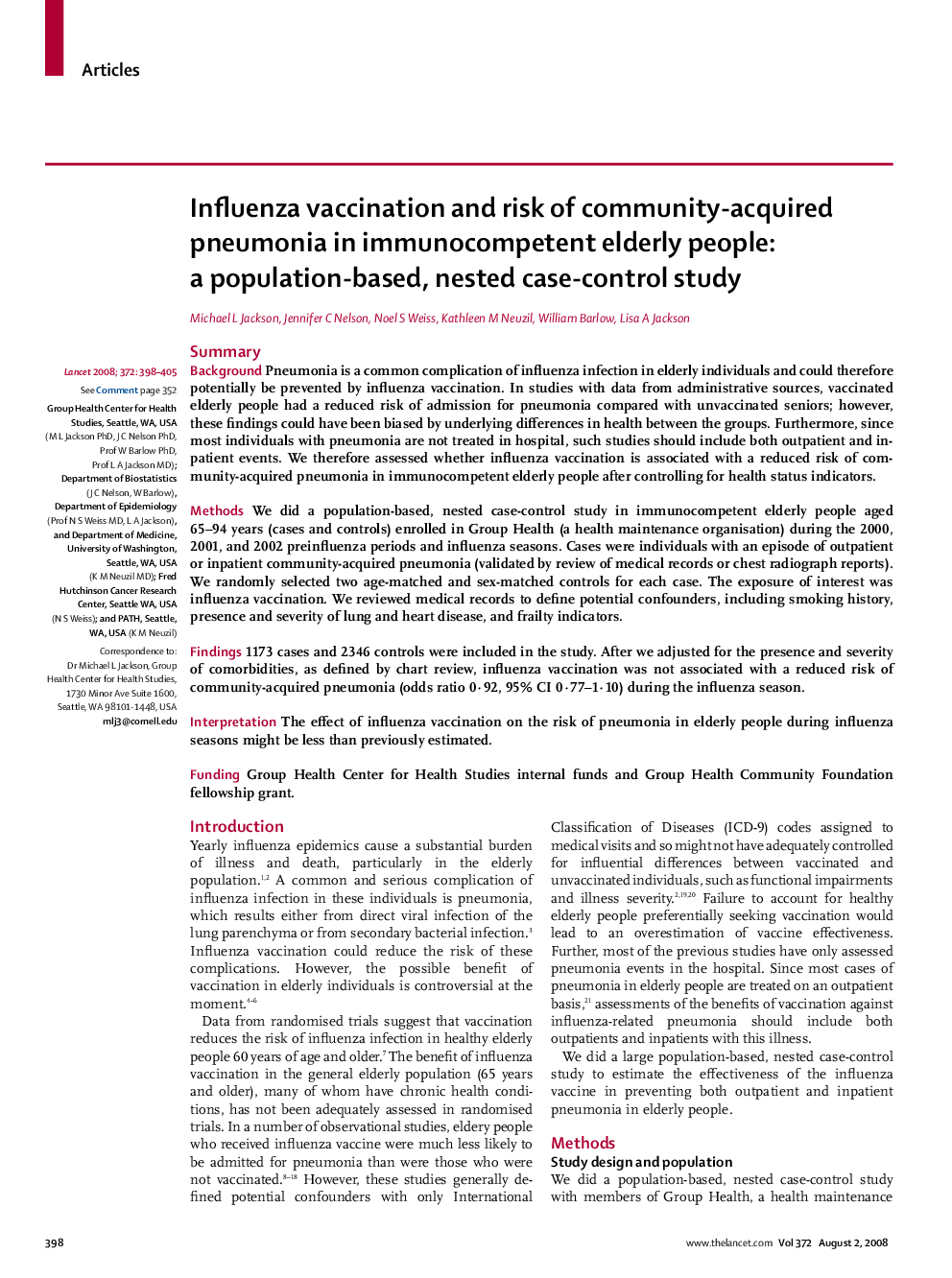| کد مقاله | کد نشریه | سال انتشار | مقاله انگلیسی | نسخه تمام متن |
|---|---|---|---|---|
| 3498331 | 1234441 | 2008 | 8 صفحه PDF | دانلود رایگان |

SummaryBackgroundPneumonia is a common complication of influenza infection in elderly individuals and could therefore potentially be prevented by influenza vaccination. In studies with data from administrative sources, vaccinated elderly people had a reduced risk of admission for pneumonia compared with unvaccinated seniors; however, these findings could have been biased by underlying differences in health between the groups. Furthermore, since most individuals with pneumonia are not treated in hospital, such studies should include both outpatient and inpatient events. We therefore assessed whether influenza vaccination is associated with a reduced risk of community-acquired pneumonia in immunocompetent elderly people after controlling for health status indicators.MethodsWe did a population-based, nested case-control study in immunocompetent elderly people aged 65–94 years (cases and controls) enrolled in Group Health (a health maintenance organisation) during the 2000, 2001, and 2002 preinfluenza periods and influenza seasons. Cases were individuals with an episode of outpatient or inpatient community-acquired pneumonia (validated by review of medical records or chest radiograph reports). We randomly selected two age-matched and sex-matched controls for each case. The exposure of interest was influenza vaccination. We reviewed medical records to define potential confounders, including smoking history, presence and severity of lung and heart disease, and frailty indicators.Findings1173 cases and 2346 controls were included in the study. After we adjusted for the presence and severity of comorbidities, as defined by chart review, influenza vaccination was not associated with a reduced risk of community-acquired pneumonia (odds ratio 0·92, 95% CI 0·77–1·10) during the influenza season.InterpretationThe effect of influenza vaccination on the risk of pneumonia in elderly people during influenza seasons might be less than previously estimated.FundingGroup Health Center for Health Studies internal funds and Group Health Community Foundation fellowship grant.
Journal: - Volume 372, Issue 9636, 2–8 August 2008, Pages 398–405